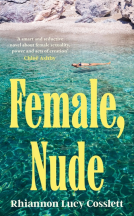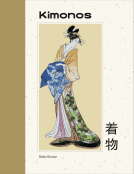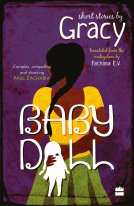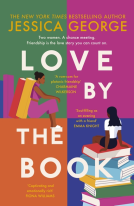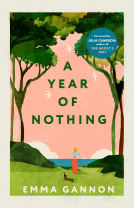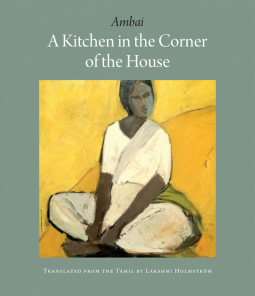
A Kitchen in the Corner of the House
by AMBAI
This title was previously available on NetGalley and is now archived.
Send NetGalley books directly to your Kindle or Kindle app
1
To read on a Kindle or Kindle app, please add kindle@netgalley.com as an approved email address to receive files in your Amazon account. Click here for step-by-step instructions.
2
Also find your Kindle email address within your Amazon account, and enter it here.
Pub Date 17 Sep 2019 | Archive Date 26 Jun 2019
Talking about this book? Use #AkitchenInTheCornerOfTheHouse #NetGalley. More hashtag tips!
Description
In A Kitchen in the Corner of the House, Ambai's narrators are daring and courageous, stretching and reinventing their homes, marriages, and worlds. With each story, her expansive voice confronts the construction of gender in Tamil literature. Piecing together letters, journal entries, and notes, Ambai weaves themes of both self-liberation and confinement into her writing. Her transfixing stories often meditate on motherhood, sexuality, and the liberating, and at times inhibiting, contours of the body.
Advance Praise
• "Ambai's stories explore the nuances of personal relationships, complex networks of emotions, and mingle themselves insightfully." - The Telegraph • "Ambai's stories...are boldly experimental, pointing to the real source of the best Indian fiction in the vernacular languages. She makes use of polyphony, fragmentation, and multiple persepctives, and her translator succeeds in capturing her technical virtuosity." - Times Literary Supplement • "Ambai brings to bear upon her tales the weight of her knowledge of the mythic, literary, and Puranic...A felicity of language and the easy flow of words make the translation a pleasure to read." - The Hindu • "Ambai excels in making physical movements parallel the progression in her stories...Lakshmi Holmstrom has been able to settle down so comfortably with the psyche of Ambai, that her translations of the latter's Tamil writings have the easy flow of the original." - Deccan Herald
Available Editions
| EDITION | Other Format |
| ISBN | 9781939810441 |
| PRICE | US$20.00 (USD) |
| PAGES | 280 |
Average rating from 19 members
Featured Reviews
 Kasa C, Reviewer
Kasa C, Reviewer
This is an exceedingly rich compilation of short stories by the revered writer, C. S. Lakshmi under her nom de plume, Ambai. Twenty-five pieces, all regarding what it means to be a woman in a Tamil family. While there are many cultural differences, it is the similarities that provoke and spark interest, areas such as reaching maturity, dealing with the natural maturity of the female body, and the importance of holding sway in the kitchen. This definitely will resound with women readers.
 Hilary W, Reviewer
Hilary W, Reviewer
This is a solid compendium of 21 stories, translated from the Tamil by Lakshmi Holstrom. They have been published in groups in 1992, 2006 and 2012 and reflect the changes in local, Indian and World politics and realities. Some are not very long and reflect an incident or a thought – the simple vicissitudes of a bus trip for instance, or a swim in the river - but others are much longer and deeper explorations of Tamil family life and culture. They are brilliant and compelling tales, but taken together they open a new window on Tamil life and are a truly extraordinary collection.
They are strong stories, creating a strong sense of place, leaving lingering thoughts and memories so selecting a few to highlight would be difficult. But the title story gives an idea of what the reader might expect. A seemingly simple description of a house – but what is then a much deeper exploration of family power politics and the relative relationship between men and women and across generations as well. Control of the kitchen indicating the most powerful woman in the household- a deeply established historical and cultural practice.
Most of the stories are told from the woman’s perspective – although the men are not of course lacking and there is sympathy for them too, but never forgetting the power they hold – and might abuse. Seemingly simple stories showing families of varying wealth allow the exploration of Tamil literature, poetry and dance – but beyond that the extent to which most people saw their lives as bedded into a stronger background of myth and ancient religion. As well, of course a substantially rural background at one with animals, plants and the landscape – all depicted vibrantly in these stories ( In the Forest A Deer, or Forest for example).
But a cluster of the longer stories depict the political struggles – through independence, the battle for women’s rights in education and safety in the streets. And then finally as some of the middle class women are entering the working places – depicting the compromise, the breadth of difference with those left behind and scarily the inter-religious struggles and violence that has since evolved and overshadows the earlier discussions on women’s rights and threatening to reverse the advances. We see a cluster of strong women working hard for rights and the price they will pay in the short and medium term – and then the review of the older survivors of what they have achieved personally and their response.
But of course, the important thing for most people is the realities, and often minutiae, of their day to day life. That is inevitably relationships, families and communities – with all their good and bad. Ambai never forgets that. So this is an important collection of stories that will speak to people across countries and cultures. But it is also an important marker of both its times and values and life styles that are changing as the world (and peoples) moves on and culture centralises. A wonderful read to browse, contemplate and enjoy the deep depiction of another culture and place.
 Kristin J, Reviewer
Kristin J, Reviewer
A Kitchen in the Corner of the House was an intriguing short story collection, especially because of the language and writing style. The stories confronts the construction of gender, which makes it a feminist read, which I enjoyed a lot.
 Educator 211653
Educator 211653
Thank you Net galley. As always, Ambai is a delight to read. Having them on my kindle is very convenient.
A combination of poetry and prose that brings Jamaica Kincaid to mind. The voice and images are impactful, if not always easy to decipher. Allowing them to gradually build upon each other ends up being a rich experience.
 Abby S, Reviewer
Abby S, Reviewer
Literary fiction at its best.Each story of women searching emerging unique wonderful fascinating.An original voice a delight to read an author to follow.#netgalley#archipeligo
 Elaine v, Educator
Elaine v, Educator
I loved these stories. They are quiet but gripping: it's a collection that will stay with me for years to come. We need more women's stories like these.
 Flavia B, Reviewer
Flavia B, Reviewer
‘A kitchen in the corner of the house’ is a rare delight, a rich and evocative series of short stories which spill over into one another, informing each other and building up a specific backdrop across generations of Tamil women. The book is a literary tapestry, the language colourful, lyrical and deeply sensual (and addictive) – it makes you want to crawl into the pages and stay there. The quiet tension is built up by a density of language and Ambai’s adept ability to inject flavour and mood into her prose. The themes circle the fate of the female, her body, the physical space she inhabits and the roles she plays. A slow paced read but all the more worthy because of it!
As a queer person, Ambai"s story of selfhood and its decomposition resonated with me. More often than not, the experience of having a voice becomes something to be coveted, in turn something to be cherished when you have it. This book taught me to relish the moments, even small ones, where I feel like I have pull amid the asymmetry of life. The smallest moments, the fragmented scenes, the aroma of existence, and the arresting voice of the narrator contributed to make the work sparkle. I got a strong sense of the culture from which this book came, now in a translation that makes it accessible to the English-speaking world. The edition I read needed a final copy-edit for formatting and translational support, but the book was a delight overall to spend time with. Thank you, Archipelago and NetGalley, for delighting my mind with this gift of a book.
Ambai's exquisitely written collection of short stories, translated with equal expertise by Lakshmi Holmström, spans themes those are vernacular, yet their humanity appeals to a global readership. Even as the stories are mostly set in Tamil Nadu, Holmström's keen-eyed translation ensures that cultural nuances never get lost in translation. (I realise I may be biased as a reviewer who grew up in Tamil Nadu and I want to acknowledge that some cultural references / quirks can indeed prove to be a stumbling block for international readers). Ambai's women are dignified in the face of patriarchal oppression, religious intolerance, and achieve their own form of self-liberation within the confines of their restricted lives when it comes to expressing love, loss, motherhood and sexuality. Some stories evoke a sense of place so strong I often found myself longing with nostalgia (even though I have no similar experience to speak of).
Readers who liked this book also liked:
Catherine Pierce
Biographies & Memoirs, Essays & Collections, Parenting, Families, Relationships




